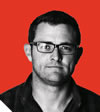Victory against France in Paris on Saturday night will almost certainly hand Ireland the Six Nations trophy.
Ireland have the best points difference of the three teams still in contention for the title (+81) followed by England (+32) – who play Italy in Rome earlier in the day – and France (+3).
France have blown more cold than hot this year and coach Philippe Saint-André has once again pulled a handful of rabbits from his selection hat, but when siege mentality takes over a French squad, as it currently has, anything is possible.
France were somewhat lucky against England, uninspired in Cardiff and similarly terrible at Murrayfield and now the cockerels of discontent have come home to roost in a big way. Large sections of the French rugby public are bordering on outrage and the media are going into overdrive as the national team and its coaching staff continue to frustrated and disappoint in equal measure.
However, the history books massively favour the French. In 42 years, Ireland have won in Paris just once, in 2000. In fact, Ireland have not beaten France in any Test since winning at Croke Park in 2009, although the last two clashes between these sides have both ended in a draw.
But if ever there was a chance, or a source of motivation, for a team to shine then the occasion of Brian O'Driscoll's final Test is it. After last weekend's emotions of the great goodbye in Dublin, the challenge for Ireland is to rekindle the magic of that performance, not an easy thing to do.
Joe Schmidt's men certainly take some impressive form to the French capital (along with the input of their sports psychologist). Ireland have been the most disciplined side in the competition, conceding just 27 penalties in the first four rounds. They are the best ruckers, losing only 18 of 458 rucks they have contested and have three of the top four turnover winners in their ranks. The Irish lineout is also the most effective with just four losses and 57 ball wins.
In other words, Ireland are the best at winning the ball, the best at keeping the ball, and give away the fewest penalties in the search of getting the ball. They're also the best at distributing the ball, leading the championship stats with 710 passes.
France are at opposite end of the passes-thrown spectrum (fifth spot with 485, just six more than Italy), which highlights the contrast between their direct approach and Ireland's willingness to move the ball into space. The selection of Louis Picamoles on the flank further shows French intent to carry the ball up route one. The big Toulouse No 8 is France's chief ball carrier while Ireland's is fullback Rob Kearney (54 carries gaining 370m).
Given those stats, one would be forgiven for wondering if the famous flair that the Parisian crowd so yearns for is more likely from the team in green. They certainly have a man who knows how to spark something special in the City of Light.
France – 15 Brice Dulin, 14 Yoann Huget, 13 Mathieu Bastareaud, 12 Gaël Fickou, 11 Maxime Médard, 10 Remi Tálès, 9 Maxime Machenaud, 8 Damien Chouly, 7 Alexandre Lapandry, 6 Louis Picamoles, 5 Yoann Maestri, 4 Pascal Papé (c), 3 Nicolas Mas, 2 Dimitri Szarzewski, 1 Thomas Domingo.
Subs:16 Guilhem Guirado, 17 Vincent Debaty, 18 Rabah Slimani, 19 Alexandre Flanquart, 20 Sébastien Vahaamahina, 21 Wenceslas Lauret, 22 Jean-Marc Doussain, 23 Maxime Mermoz.
Ireland – 15 Rob Kearney, 14 Andrew Trimble, 13 Brian O'Driscoll, 12 Gordon D'Arcy, 11 Dave Kearney, 10 Jonathan Sexton, 9 Conor Murray, 8 Jamie Heaslip, 7 Chris Henry, 6 Peter O'Mahony, 5 Paul O'Connell (c), 4 Devin Toner, 3 Mike Ross, 2 Rory Best, 1 Cian Healy.
Subs: 16 Sean Cronin, 17 Jack McGrath, 18 Martin Moore, 19 Iain Henderson, 20 Jordi Murphy, 21 Eoin Reddan, 22 Ian Madigan, 23 Fergus McFadden.
Photo: Richard Heathcote/Getty Images




